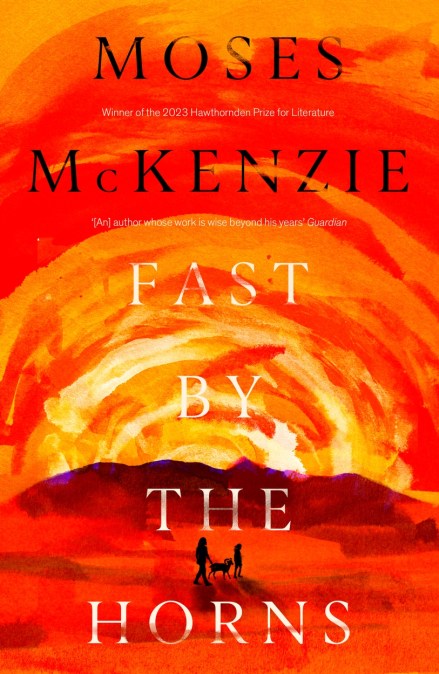SHORTLISTED FOR THE SUNDAY TIMES CHARLOTTE AITKEN YOUNG WRITER OF THE YEAR AWARD
‘With the sharp and delectable music of its dialect, the book grabs you by its teeth from the first page and never quite lets go . . . This is an urgent novel of ideas, constantly propelled by the narrator’s wildfire voice’ SAFIYA SINCLAIR, GUARDIAN
‘Raw, witty and exuberant’ – THE BEST PAPERBACK BOOKS OF 2025 – JANUARY’S PICKS, The Times
From the Hawthornden Prize-winning author of An Olive Grove in Ends, a powerful story of broken dreams and divided loyalties
Bristol, 1980. In the tight-knit neighbourhood of St. Pauls, 14-year-old Jabari is proud of his position as the only son of revered community leader Ras Levi. Raised in a world of sus laws and council neglect, Jabari finds hope in his Rastafari faith, which offers the comforting vision that one day he and his fellow believers will repatriate to the motherland, where they will at last be free from oppression and prejudice.
But in St Pauls a local firebrand activist has been arrested, and violence soon overflows, pulling both father and son into its maelstrom. As Jabari rages against the iniquity, a chance encounter with a young Black child gifts him an opportunity for justice – or is it revenge?
Praise for An Olive Grove in Ends:
‘Tough yet tender’ Observer – 10 Best Debut Novelists of 2022
”Luminous’ Cherie Jones
‘Moses’ talent is off the scale’ Donal Ryan
‘Remarkable’ Nathan Harris
‘Consummately crafted’ Patrick McCabe
‘With the sharp and delectable music of its dialect, the book grabs you by its teeth from the first page and never quite lets go . . . This is an urgent novel of ideas, constantly propelled by the narrator’s wildfire voice’ SAFIYA SINCLAIR, GUARDIAN
‘Raw, witty and exuberant’ – THE BEST PAPERBACK BOOKS OF 2025 – JANUARY’S PICKS, The Times
From the Hawthornden Prize-winning author of An Olive Grove in Ends, a powerful story of broken dreams and divided loyalties
Bristol, 1980. In the tight-knit neighbourhood of St. Pauls, 14-year-old Jabari is proud of his position as the only son of revered community leader Ras Levi. Raised in a world of sus laws and council neglect, Jabari finds hope in his Rastafari faith, which offers the comforting vision that one day he and his fellow believers will repatriate to the motherland, where they will at last be free from oppression and prejudice.
But in St Pauls a local firebrand activist has been arrested, and violence soon overflows, pulling both father and son into its maelstrom. As Jabari rages against the iniquity, a chance encounter with a young Black child gifts him an opportunity for justice – or is it revenge?
Praise for An Olive Grove in Ends:
‘Tough yet tender’ Observer – 10 Best Debut Novelists of 2022
”Luminous’ Cherie Jones
‘Moses’ talent is off the scale’ Donal Ryan
‘Remarkable’ Nathan Harris
‘Consummately crafted’ Patrick McCabe
Newsletter Signup
By clicking ‘Sign Up,’ I acknowledge that I have read and agree to Hachette Book Group’s Privacy Policy and Terms of Use
Reviews
[The] quicksilver sense of ingenuity and battle-worn verve born of necessity to Caribbean people is at the heart of this compelling new novel by Moses McKenzie. Fast by the Horns is a fascinating depiction of Black immigrant life and Rasta boyhood in 1980s England. With the sharp and delectable music of its dialect, the book grabs you by its teeth from the first page and never quite lets go. At its best, this is an urgent novel of ideas, constantly propelled by the narrator's wildfire voice, written almost exclusively in beautiful Rastafari vernacular . . . Here is a love letter to the Windrush generation who came to fight and build and labour for a nation who then left them the bleak, shelled remnants of the city after the second world war, and the scorn of their fellow citizens. Fast by the Horns is a rallying cry for these immigrants. But at its most tender, it's also about their unsutured wounds . . . I only wished to stay with the captivating spirit of Jabari, in his familiar loneliness and the dark torch of his boyish questioning, for just a bit longer.
